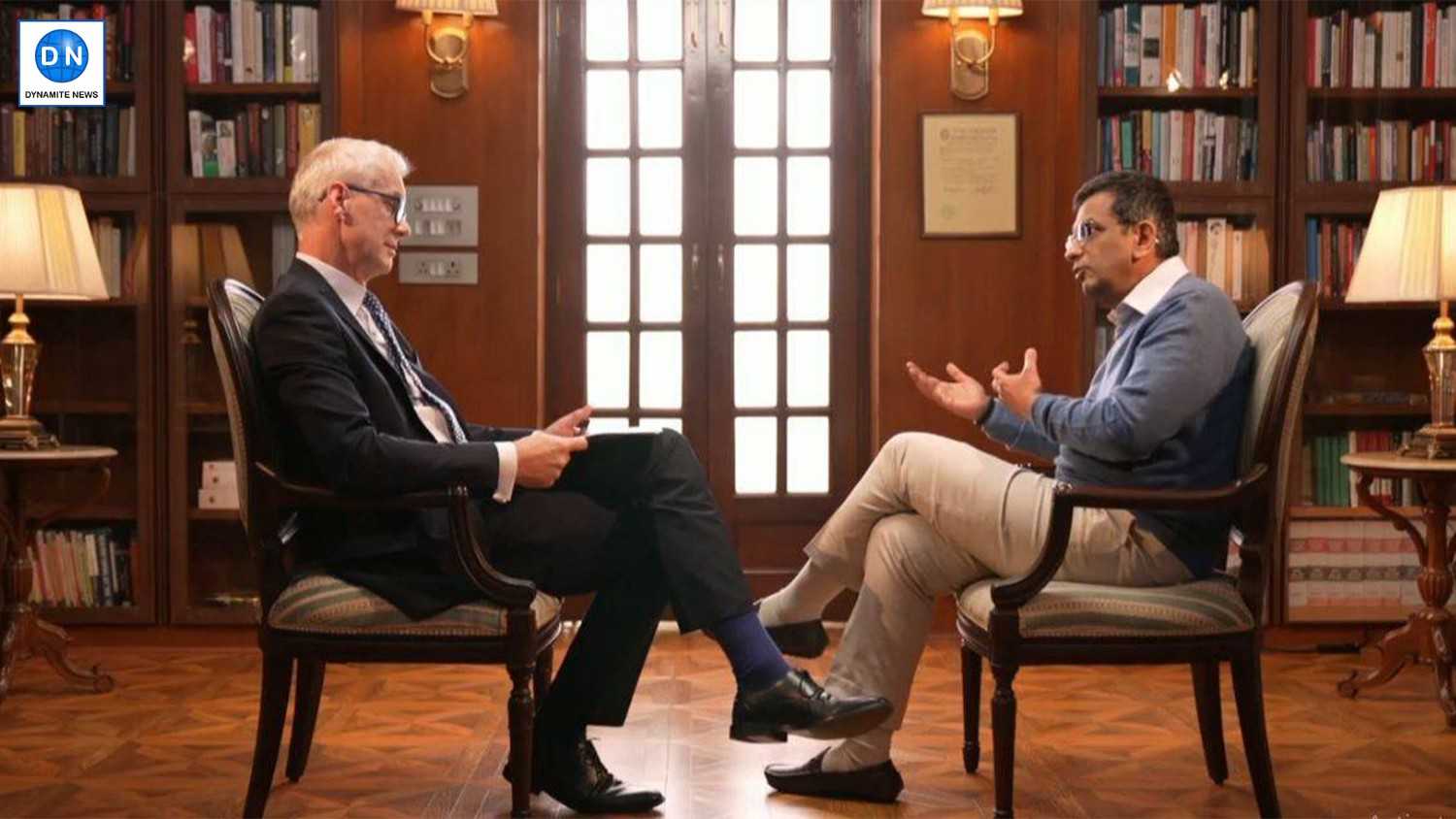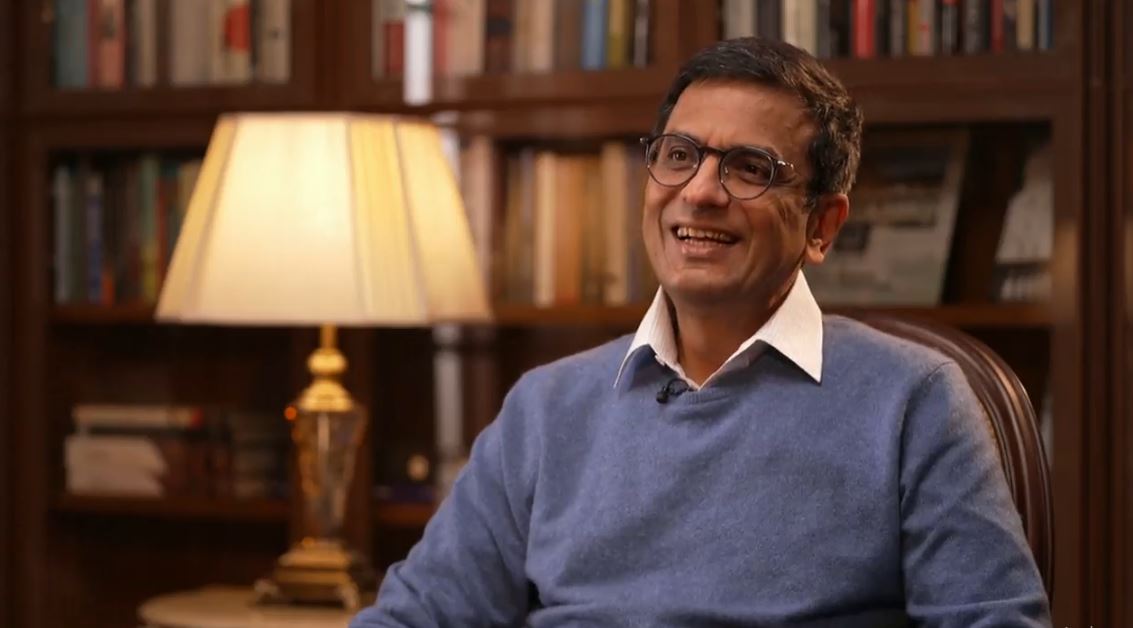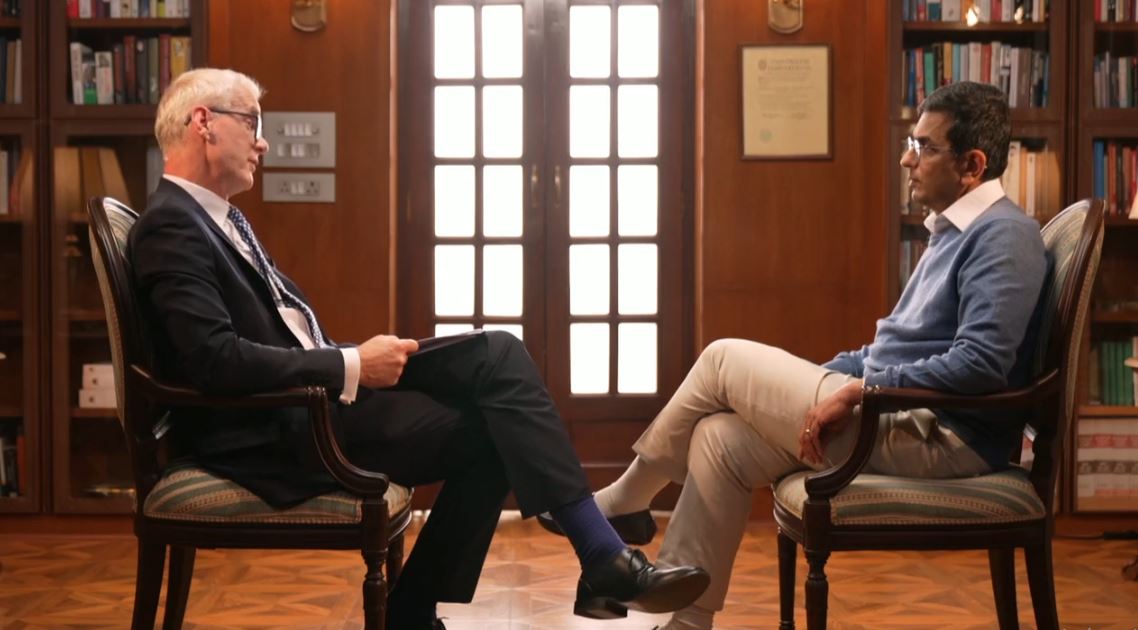Ex-CJI Dr DY Chandrachud on BBC HARDtalk: India is economic powerhouse; A sound democracy
The former Chief Justice Dr DY Chandrachud faced tough questions on BBC HARDtalk. A must read on Dynamite News:

New Delhi: Former Chief Justice of India Dr DY Chandrachud asserted that Indian democracy is sound and India is on the path of becoming economic power house.
Dr Chandrachud was in conversation with journalist Stephen Sackur on BBC HARDtalk.
The former Chief Justice faced tough questions from veteran journalist Stephen Sackur. The questions ranged from the gender ratio in the judiciary to key judgments on the cases such as Ram Janmabhoomi, the Article 370 and to dynasty in judiciary.

Abrogation Of Article 370
When asked about the abrogation of Article 370 regarding the special status of Jammu and Kashmir, Dr Chandrachud said that when Article 370 was introduced into the Constitution it was part of a chapter which is titled Transitional Arrangements, it was later renamed Temporary and Transitional Arrangements. That means what was transitional would have to fade away and merge with the overall context of the Constitution.
Justice Chandrachud further said the democratic process in Jammu and Kashmir must be restored and a democratically elected government is in place now. "There has been a peaceful transfer of power to a government which is a political party which is not of the dispensation as the Union government in Delhi. This is a clear indicator that democracy has succeeded in Jammu and Kashmir.
Also Read |
Gunfire in a brawl kills one in Delhi's Gangapuri
Ram Temple Judgment
Asked about the landmark Ram Temple judgment, Dr Chandrchud said, "… I am a man of faith …and what my faith teaches me is the universality of religion and irrespective of who comes to my court, and that applies to all other judges in Supreme Court, you dispense equal and even-handed justice."
He further said, “For me, time in meditation and prayer is very important, but my time in meditation and prayer teaches me to be even-handed to every religious group and community in the country."
Dynasty In Judiciary?
When asked about the dynasty problem in Indian judiciary and domination by elite, male, Hindu upper caste men like him, Justice.
Dr Chandrachud disagreed and said, "If you look at the lowest levels of recruitment to the Indian judiciary, the district judiciary, which is the base of the pyramid, over 50 per cent of the new recruits are women... In so far as gender balance in concerned, you find an increasing number of women coming into district judiciary and these women will be climbing up."
In response to the question about being the son of a Chief Justice, he said that his father, former Chief Justice of India YV Chandrachud, had told him not to enter a court of law so long as he was Chief Justice of India. "That's why... I entered a court for the first time after he retired. If you look at the overall profile of the Indian judiciary, most lawyers and judges are first-time entrants into the legal profession. So quite contrary to what you said, it is not that our judiciary is either upper caste or....”
Also Read |
Dalit PhD scholar commits suicide at JNU due to 'personal issues'

Judiciary And Politics
The former Chief Justice was asked if he had to deal with political pressure during his term, Dr Chandrachud said the 2024 general election results debunked the myth that India is combining towards a one-party state.
"If you look at the states in India, the states are where the regional aspirations and identities have come to the fore, and so many of our states in India you have regional political parties which have done exceptionally well and they are ruling those states," he said.
On Prime Minister's Visit To His Home
To a question about The Prime Minister Narendra Modi's visit to the then Chief Justice's home for Ganesh Chaturthi, Dr Chandrchud said not much should be made out of "elementary courtesies of Constitutional office".
"I think our system is mature enough to understand that elementary courtesies which are observed between high Constitutional functionaries have nothing to do with the way they dispose of cases," he said.
Safeguarding Personal Liberties
Citing the number of people who have been granted bail, many of them political leaders, he said, "Higher courts, particularly Supreme Court, have sent a clear message that we are here to safeguard personal liberties, in individual cases, there may be a difference of personal opinion, but the fact of the matter is that the Supreme Court has been at the vanguard of personal liberty. This is the reason why we have the faith of the people," he said.
 Dynamite News
Dynamite News 